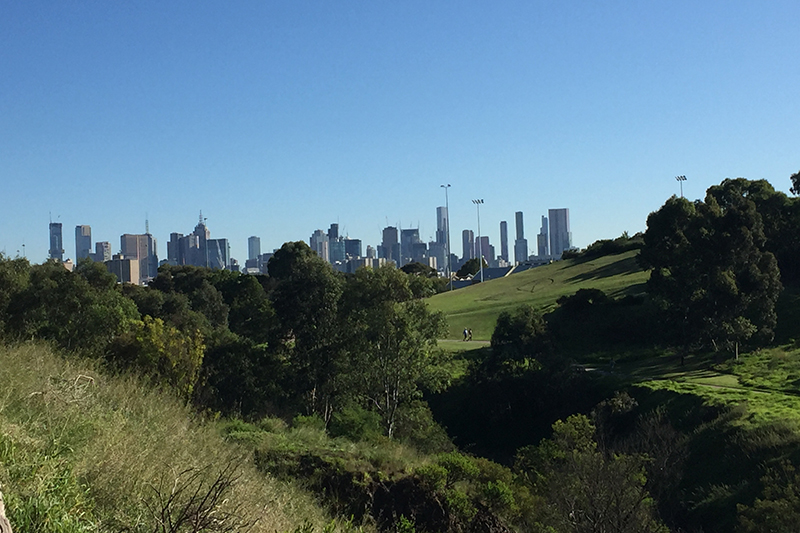Nature-Based Solutions for Building Urban Resilience

In lockdown Melbourne, we have been re-acquainting ourselves with our patches of local urban green and blue spaces, discovering that connections with nature are even more important as our personal connections with each other have been limited. Nature-based solutions are increasingly identified to address challenges around health and wellbeing, but also to a number of other aspects such as biodiversity loss, air and noise pollution, heat waves, flooding, and droughts.
In the lead up to next year’s UN’s Convention on Biological Diversity, cities and subnational governments have highlighted their deep concern for “the significant implications that the loss of biodiversity and climate change has on our livelihood and communities”. Cities have important roles to play in conserving biodiversity and ecosystems, both common and threatened species. Cities and subnational governments are calling for ambition and urgency, renewed focus and action that is practical, implementable and measurable. They are calling to mobilise finance, partnerships, multi-level governance and whole of city approaches that include all levels of government, community and private sector.
How is Melbourne tracking in driving nature-based solutions?
This webinar will provide insights into two initiatives at the metropolitan scale and sub-metro scale. Martin Hartigan offers an overview of the strategy ‘Living Melbourne’, a metro-scale urban forest and biodiversity strategy, which was developed by Resilient Melbourne and The Nature Conservancy, and is now being implemented through project approaches around the metro area. Rachel Lopes will discuss ‘The Chain of Ponds collaboration’, an initiative bringing together 17 partner organisations to trial new ways of collaboration. It addresses the challenges of restoring and transforming one of Melbourne’s most urbanised and modified creek systems, the Moonee Ponds Creek Catchment.
Followed by Q&A discussion, moderated by Judy Bush and Sebastian Fastenrath.